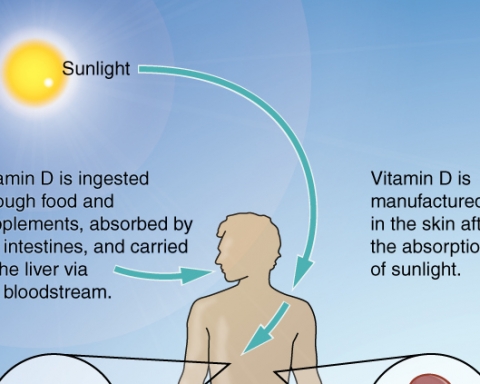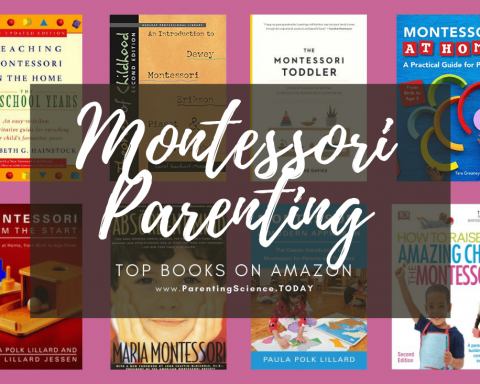Direct sunlight is very important for all living organisms because it affects their growth and development. Sunlight—and exposure to early morning sunlight in particular—helps the skin receive beneficial nutrients like vitamin D, which plays an important role in maintaining one’s health and vitality.
As part of responsive parenting, pregnant women should get adequate sunlight exposure since it helps the baby’s development in the womb. Likewise, newborns also benefit from appropriate sun exposure.
The importance of sunlight for mothers and their babies can be deduced from one particular research study, which stated, “Most of the rachitic infants were breast-fed, some received unsupplemented infant feeding formulae, and all live in an environment that is devoid of sunlight.”
The lack of sunshine in many western countries means that a large portion of the population is deficient in vitamin D and has a higher rate of osteoporosis and bone fractures.
Here are some reasons why the sun is good for mothers and their babies.
Why Vitamin D Is Crucial for Your Baby
- Vitamin D improves the absorption of calcium in the body.
- Vitamin D also helps maintain blood pressure and stabilize insulin levels.
- Vitamin D protects the body from certain types of cancers and autoimmune diseases.
- If cuts or injuries occur, vitamins D and K work together to clot the blood to prevent excessive blood loss.
- Vitamin D also helps develop the nervous system. Although a baby’s nervous system is formed in the womb, it matures post-natally through responsive parenting.
- Low vitamin D levels lead to jaundice in infants. Some research found that “Newborn vitamin D levels were significantly lower in jaundiced cases compared with those in the nonjaundiced healthy groups, which may reveal an association between indirect hyperbilirubinemia and serum vitamin D levels.”
Setting the Circadian Rhythm in the Baby
Sunlight helps set the baby’s circadian rhythm so that the baby learns to stay awake during the day and sleep soundly at night. At birth, most babies have a day-night reversal issue, which causes them to sleep throughout the day and stay awake at night. Also, babies who spend a lot of time indoors have a difficult time falling asleep at night. Therefore, exposing babies regularly to sunlight as part of responsive parenting can make it easier to set the baby’s circadian rhythm.
Hormonal Balance
Hormones are responsible for maintaining different body functions. They also help regulate moods, emotions, and cognitive processes. Hormone production in the body depends on several internal as well as external factors. Babies need external help from responsive parenting to regulate their hormones, which start producing properly after the third month.
Sunlight aids in the production of one very important hormone called serotonin. Serotonin helps a baby feel secure, happy, and alert. It also helps the baby learn better. Therefore, appropriate sunlight exposure will lead to a better hormonal balance for the baby.
How Much Sunlight Should Your Baby Receive?
How much sunlight a baby should receive depends on the baby’s skin tone. Darker complexions can withstand more sun exposure, whereas fair skin tends to tan or burn easily in the sun. Ten minutes of early morning sun is great for a baby who has a fair complexion, and fifteen to twenty minutes is sufficient for a baby who has a dark complexion.
Babies can be taken outside three to four times a day when the sun isn’t very bright and strong because the UV rays are low. During therapeutic sunbathing, take the baby’s clothes off along with the diaper so that the skin is able to come in contact with the sun. If the parents cannot manage to go out with the baby all the time, use the balcony and porch for responsive parenting. Even sitting by a sunny window with the baby is beneficial.
Remember, food and supplements can help with nutritional deficiencies; however, there is no substitute for real sunlight. Safe exposure to the sun is immensely beneficial for mothers and infants. Responsive parenting can help everyone make the most of it.

References
Aetayeb, Seyyed Mohammad Hassan, Masoud Dehdashtiyan, Majid Aminzadeh, Arash Malekyan, and Somayeh Jafrasteh. “Comparison between Maternal and Neonatal Serum Vitamin D Levels in Term Jaundiced and Nonjaundiced Cases.” Journal of the Chinese Medical Association 79, no. 11 (2016): 614–617. Retrieved from https://www.ncbi.nlm.nih.gov
Elidrissy, Abdelwahab TH, Saleh H. Sedrani, and David EM Lawson. “Vitamin D Deficiency in Mothers of Rachitic Infants.” Calcified Tissue International 36, no. 1 (1984): 266–268. Retrieved from https://link.springer.com












